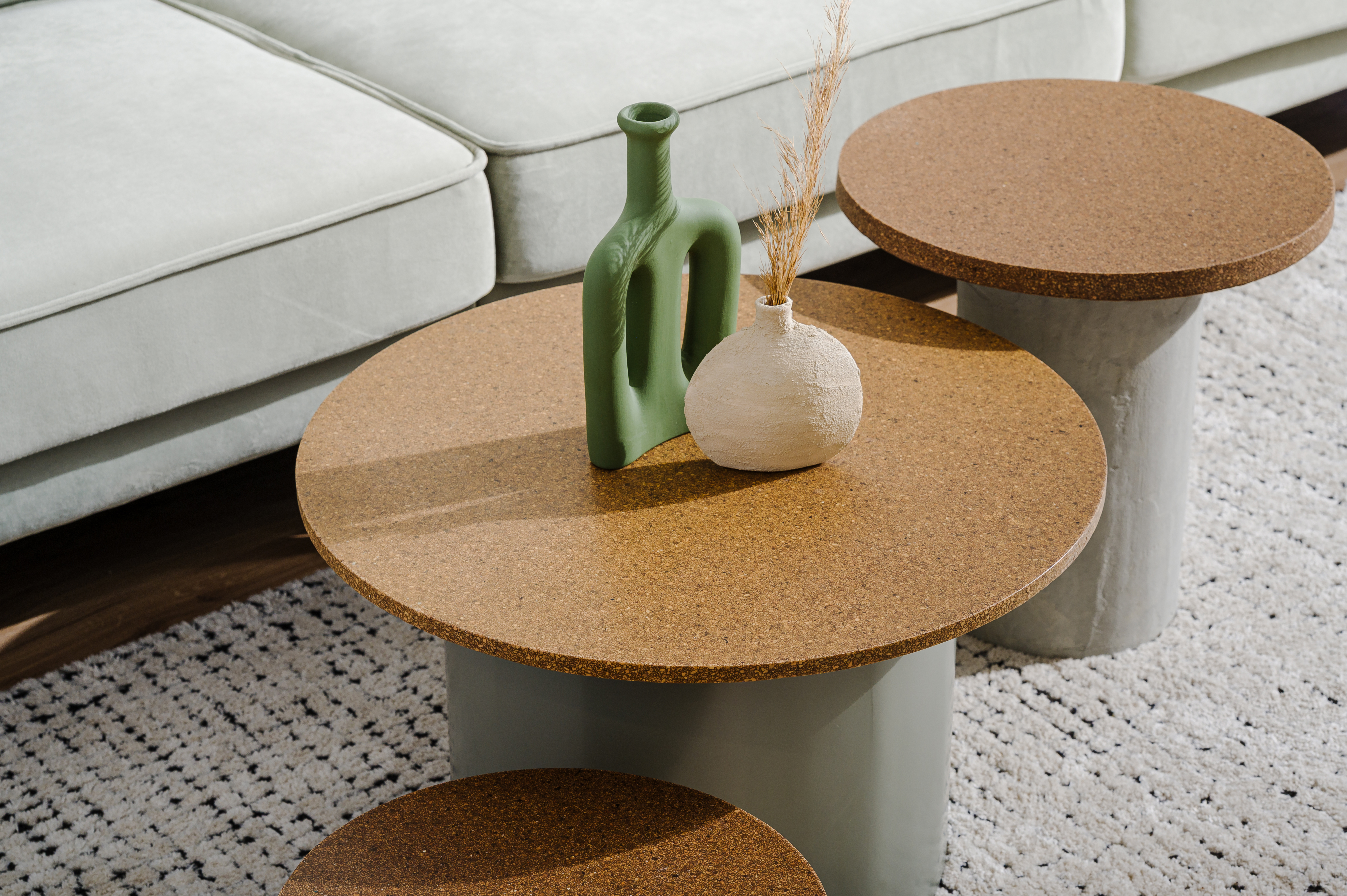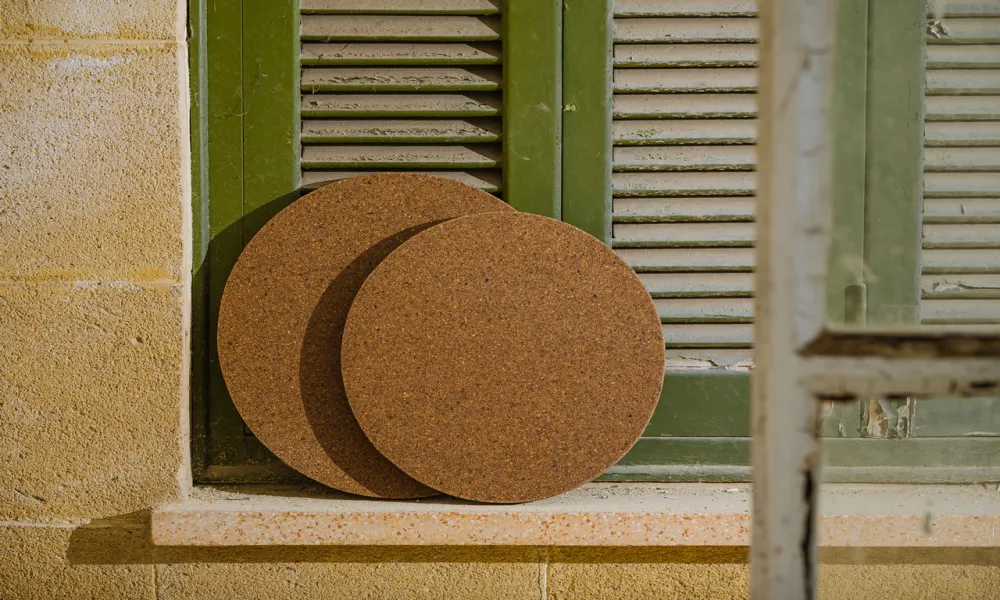A bicommunal initiative is taking a staple Cypriot ingredient and transforming it into sustainable furniture, utilising olives as a symbol for peace. The project, called ‘Pit to table’ uses olive pits from both sides of the divide, and transforms them into sustainable worktops with versatile uses, including cabinetry, dining tables, and panels. The end result is called a Pit-board.
It aims to create beauty out of waste, and take the ancient practice of olive picking to create a sustainable product with the use of technology and innovation.
Underpinning the approach is the idea that “diversity is the spice of life…celebrating difference rather than allowing it to be a barrier,” according to the Pit-board’s information leaflet.
The startup is the brainchild of Mustafa Afsaroglu, a Turkish Cypriot architect who has been in London’s design industry for 15 years. The idea was borne over lunch with his brother and cousin one day, left on the back burner for a couple of years and started coming back to life after he moved back to Cyprus.
“I saw an application through the UNDP for a venture program in September 2023,” he told Politis. Over the next three months, Afsaroglu along with his other two co-founders Yagmur Fellahoglu and Bugra Ebeler developed a prototype, a business plan and a pitch deck before winning €25,000 through the program. Thus began the painful process of bringing the idea to life.

As part of its bicomunnal nature, the Pit-board sources olive pits from both sides of the divide, where the team initially struggled to find farmers that could take their project seriously.
“Many saw it as a school project,” Afsaroglu recalls. Eventually, specific farmers saw the vision and got on board, though it required the team travelling across all corners of the island.
As the Pit-board has now begun to reach the public, Afsaroglu reflects that a lot of the enthusiasm is linked to everything the product represents.
“People love the story that it comes from a divided island in an effort to promote peace,” with the symbolism of the olive branch central to the message.
“It feels very Cypriot. Olives are such an ancient and basic item, part of our lifestyle on both sides. It’s not just in our diet, it’s in our upbringing.”
In effect, the team has taken a traditional, staple ingredient rooted in Cyprus’ history, added sustainability and technology to it, to make it a modern, whirlwind product now showcased abroad.
Once the Pit-board was finalised in May, it was exhibited in London’s Clerkenwell Design Week, where thousands viewed the product and heard the story behind its inception.
Part of the charm that sparked interest by the public for the Pit-board lies in how close to its roots the product is. With olive picking representing an organic lifestyle, it adds technology as an ingredient to transform it to a 21st century sustainable item that creates beauty out of waste, he says.
Afsaroglu reflects that the Pit-board is an item close to home, in numerous ways. The tradition of the island, the love for olives across Cyprus and on a more personal note, his own family roots. In fact the information leaflet itself features a picture of his mother picking olives.
“It’s a beautiful product and the best feedback we’ve gotten is about the story of the product. People love the history behind it.”
"Let people find their tribe"
The bicomunnality of the Pit-board is less about the team members but more about the geographical reach, in how the olive pits are sourced, as well as the collaborations springing to life across the island, geared at bringing the tabletops to life, he explained.
"Our initiative actively fosters inclusion by ensuring that both Turkish and Greek Cypriot communities feel equally represented. We also ensure equal participation across gender lines, offering opportunities for both men and women without bias.”
“We let people unite through common ground rather than forcing it…Let people find their tribe. Once they do, the collaboration is going to happen naturally,” he stipulates.

Afsaroglu’s team has commissioned NeemaLabs as an R&D partner, and carried out various tests for the product’s development at the CYENS Centre of Excellence, both based in the government-controlled areas of Nicosia. They credit SocialTech Lab as a helpful hand that guided them and connected them with collaborators.
As of now, the newly launched product has begun to gather interest from both the UK and locally on the island.
Available in three different colours, the plan is to now see the fruits of their labour transform commercially while raising Cyprus’ footprint.
“I really wanted to do something from Cyprus, symbolically put us on the map and make a global impact within my world,” he recalls.
“By transforming discarded olive pits into bio-panels, we are creating opportunities for sustainable supply chains locally and greener building practices globally while reducing pollution on our island.”
More information can be found here.
